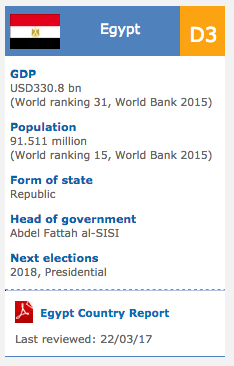Iceland: IMF Executive Board Concludes 2013 Article IV Consultation with Iceland
2013/08/10

On August 1, 2013, the Executive Board of the International Monetary Fund (IMF) concluded the Article IV consultation and third Post Program Monitoring discussions with Iceland.
Iceland’s economy is on a path to recovery, but legacy vulnerabilities are weighing on growth. GDP growth—which reached 2.9 percent in 2011—slowed to 1.6 percent in 2012 amid private sector deleveraging and weak external demand. Unemployment has continued to decline however, standing at 5.1 percent in May, down from a peak of 9.2 percent in September 2010.
Progress in lifting capital controls has been limited. Modest amounts of offshore krona have been released through the channels opened up by the authorities’ liberalization strategy. But the stock of liquid offshore krona remains high and could rise significantly as the estates of “old banks” are wound up. Additional foreign exchange outflows could also arise from potential resident portfolio rebalancing as capital controls are lifted.
Inflation has come down to 3.3 percent in June from a peak of 18.6 in January 2009, but remains above the central bank’s target of 2½ percent. The central bank responded by raising policy rates by a cumulative 125 basis points in 2012 before pausing in November. During the winter, the CBI also intervened in the foreign exchange market, reversing a depreciation that resulted from temporary factors but threatened to pass through to prices.
Fiscal consolidation is facing headwinds. On current trends, the 2013 budget deficit target will be missed owing to slower than projected growth, expenditure overruns, and lower-than-budgeted dividend payments and asset sales. The existing target of a balanced budget in 2014 may also come under pressure from costly electoral promises—including those to lower taxes and to increase household debt relief—the financing for which remains uncertain. Medium-term fiscal adjustment relies in part on one-off or uncertain measures.
The condition of the banking system has improved, but legacy risks remain. Banks are well capitalized, liquid, and profitable. Nonperforming loan ratios have also declined. But banks are still reliant on short-term funding and deposits captured by capital controls, and face continued loan valuation uncertainty. There has been progress with corporate and household debt restructuring, but the pace of resolving remaining cases has been slow. The Housing Financing Fund (HFF) is in a difficult financial position.
Reserves remain at comfortable levels, with the ratio of gross reserves to short-term debt projected to remain well above 100 percent over the medium term. The outlook is for modest growth, declining inflation, and improving fiscal and external position. However, downside risks prevail, including from disorderly or delayed capital account liberalization, weaker fiscal consolidation, and possible adverse euro area developments.
Executive Board Assessment
Executive Directors welcomed the progress made by Iceland on the recovery path from the 2008 crisis and noted that the outlook points to a continued expansion, further disinflation, and additional improvements in the fiscal and external positions. Nonetheless, Directors agreed that the legacies of the crisis continue to pose challenges that must be addressed to reinforce the foundations for durable growth.
Directors emphasized the importance of a comprehensive approach to lifting capital controls. They urged the timely publication of a well-defined strategy to release the stock of liquid offshore krónur—a key condition for removing the controls. Prudential regulations and supervision would need to be strengthened in the run-up to full liberalization, and additional measures, such as speed limits on outflows, could be considered.
Directors expressed satisfaction with the central bank’s actions to bring down inflation. They encouraged the authorities to continue improving liquidity operations given the still weak monetary transmission mechanism. Directors supported the central bank’s intention to purchase foreign currency in the open market as opportunities arise, to boost foreign exchange reserves.
Directors welcomed the progress in fiscal consolidation, but expressed concern over recent slippages. They emphasized the importance of adhering to the fiscal targets to reduce public debt, preserve confidence, and bolster market access. Accordingly, they encouraged the authorities to take measures to meet the balanced budget target for 2014, and to rely on more durable sources of fiscal consolidation over the medium term. Directors also welcomed the creation of a parliamentary committee to review public spending and looked forward to enactment of the draft Public Finances Act to strengthen budget discipline and accountability.
Directors agreed that there is little fiscal space for additional household debt relief. In this regard, they considered appropriate the authorities’ intentions not to undertake further household debt relief unless fiscal space is created. Any new measures should be targeted to distressed households not captured under existing programs. Directors also noted scope to improve existing debt restructuring processes.
Directors welcomed improvements in the banking system. Nonetheless, they urged the authorities to address legacy risks through heightened supervisory oversight and a strengthened financial stability framework. They also recommended a comprehensive reform of the Housing Financing Fund.
- Related Articles

Climate change laws around the world
2017/05/14 There has been a 20-fold increase in the number of global climate change laws since 1997, according to the most comprehensive database of relevant policy and legislation. The database, produced by the Grantham Research Institute on Climate Change and the Environment and the Sabin Center on Climate Change Law, includes more than 1,200 relevant policies across 164 countries, which account for 95% of global greenhouse gas emissions.
Brexit negotiations should treat energy as ‘special case’
2017/05/14 There are strong practical reasons why the UK and EU should treat energy as a appropriate case during Brexit negotiations, argues a new statement. The statement, jointly authored by Chatham Home, the University of Exeter and the UK Energy Research Centre (UKERC), says finding common ground on energy during the Brexit negotiations would benefit both the UK and remaining EU27, while compromise may be relatively easier to achieve than for other areas.Iceland Outlook for 2013-14
2013/11/02 The country (Iceland) is situated in Northern Europe, island between the Greenland Sea and the North Atlantic Ocean, northwest of the UK. Land in Iceland is typically plateau interspersed with mountain peaks, icefields; coast deeply indented by bays and fiords. The climate is temperate, moderated by North Atlantic Current; mild, windy winters, damp, cool summers. English, Nordic languages, German widely spoken. Outlook for 2013-14
- Iceland News
-
- AFGHANISTAN: UNWTO: International tourism – strongest half-year results since 2010
- ALBANIA: US LNG exports make European market more competitive
- AFGHANISTAN: Higher earning Why a university degree is worth more in some countries than others
- ALBANIA: Europe in 2016: Terror fears, migration, politics. But economy may turn a corner
- AFGHANISTAN: Global growth will be disappointing in 2016: IMF's Lagarde
- AFGHANISTAN: Revised IMF forecasts signal gloom on global economic outlook
- Trending Articles
-
- CHINA: China welcomes Guinea to take part in Belt and Road Initiative
- CAMEROON: Poor End of Year Results for Cameroon Students
- UGANDA: Ugandan Govt Starts Verifying International Academy Teachers
- CHINA: Chinese-supported infrastructure projects change Zambia's landscape
- KENYA: Kenya to hold fresh presidential election on October 17
- UNITED STATES: Surkus app lets companies pay users to be part of crowd












